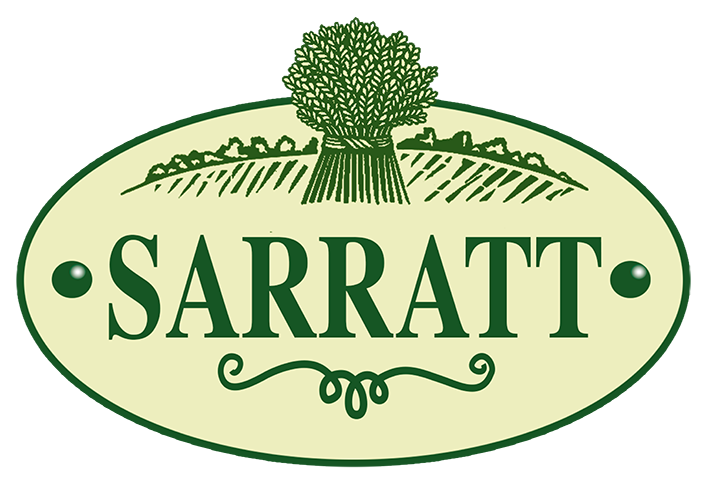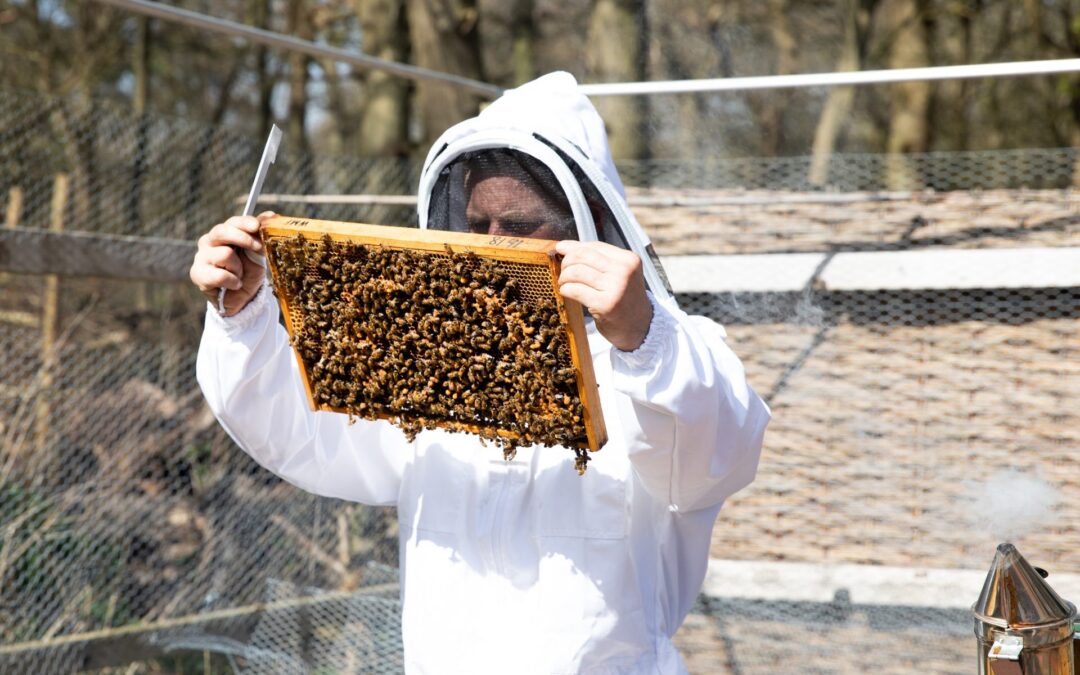Meet The Creator: Bartek Wojcik, Gardener and Beekeeper
Bartek Wojcik is part of our Gardens team here at The Grove but has found his passion in taking care of our very own beehives. We caught up with him about what his job entails ahead of the summer and harvesting our first batch of home-grown honey.

Bartek, how did you become our unofficial resident beekeeper?
I’ve been working at The Grove for 11 years now; I started in Room Service and moved departments a couple of times before joining the Gardens team 6 years ago and finding my real passion. The Gardens team work on such a wide range of projects, from developing the permaculture ethos through Jemima’s Kitchen Garden to building installations for summer pop-ups and I love to get involved with project work.
Maintaining our beehives was something I was particularly interested in though. So, over the last year or two, I started teaching myself how to become a beekeeper through watching YouTube videos and speaking to experts. I’m still learning now and have a long way to go but I absolutely love it.
How many hives do we currently have at The Grove?
We currently have 5 hives, but we are hoping to have 6 to 8 by the end of the summer. As each hive becomes stronger we can split them and create more, thus growing our hives and producing more honey. We’re also planning to add a bumble bee hive to our tomato house. One of our hives can be found in Jemima’s Kitchen Garden so guests can see, but we keep this one small to protect little explorers! The others are tucked away behind the Walled Garden.

What are the benefits of having bee hives?
Firstly, the bees cross pollinate, which is needed for plants to reproduce and for fruit to grow – essential for our estate to plate ethos! We actually have Mason bees at The Grove as well, which are the most endangered type of bee and without them we would have no fruit and veg. We’ve bought tubes where they can lay eggs, we will then close the tubes and keep them safe until they are ready to hatch.
Secondly, they make honey. The bees live off the honey they make so it takes time to grow the hives so there is enough honey for them to eat and for us to take away. This will be the first summer we will be able to harvest the honey which I’m very excited about!

How do you look after and grow the hives?
I go into each hive and make sure they have enough space and something to eat. Although they eat the honey they make, they also need water. During winter, when there are fewer flowers around, we’ll give them sugar water. I’ve also made cloches for the hives to protect them from Woodpeckers eating them in winter.
To make sure they flourish, we’ve ensured there are plenty of plants nearby that produce nectar, such as wildflowers or lime trees; these plants can actually influence the taste of the honey.
I also make sure there is a Queen in each hive, which is vital in regulating the colony. Sometimes there can be multiple Queens in a hive and when this happens the bees will kill all but one, however we are looking at taking Queens out, isolating them and then adding them to a hive without a Queen.
Finally, when the time is right, I’ll harvest the honey by taking the honeycombs and steaming the honey out.
In each hive you have various bees, with different tasks – what are these?
So there has to be a Queen in each hive and her job is to lay eggs. There are drone bees which are male and they are there purely to mate and then there are worker bees. They are responsible for pretty much everything else – gathering nectar, caring for the queen and larvae, keeping the hive clean, guarding the hive’s honey and producing honey.

How do you protect yourself, and do you get stung?
I wear PPE when checking the hives and use a smoker filled with wood chips. The smoke fools bees into thinking there is a forest fire, so they start feeding to stay calm. This means they are more interested in eating than me!
The bees won’t sting you unless you are bothering them, for example disturbing the hive or stealing the honey. The more they get to know me, the less they will sting me. Of course I have been stung but I just think of it as a perk of the job!
As we come into spring and summer, our gardens will come to life again. Find out more about Jemima’s Kitchen Garden before your next visit.

